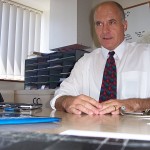The brouhaha about doctors and social media continues.

The Doctor by English social realist painter Luke Fildes, 1891. It was inspired by the death of his own son from TB
Dr Dike Drummond writes on KevinMD that medical Social Media is a bubble economy with “no return on investment” and it’s just “one more thing to burn you out”. Leave it alone, he says. Doctors with no interest in education outside their own patients, and whose only concern is financial, will take his advice.
At the other extreme, the Mayo Clinic has launched itself into the medical clouds and clearly plans to go for the stars. Their advice for doctors embarking on the same journey is a laconic 12-Word Policy: Don’t Lie, Don’t Pry, Don’t Cheat, Can’t Delete, Don’t Steal, Don’t Reveal.
Meanwhile, guidelines for doctors are appearing everywhere. Many contain good advice, albeit wordy, such as this recent 12 page report from the Massachusetts Medical Society.
I have always felt that any behavioural differences between Real Medicine and professional Social Media are moot. These views are expressed here and here. We learn ethical behaviour as students, we teach ethical behaviour to students. It’s exactly the same ethical behaviour expected in Social Media. There is no difference.
Actually, this post was triggered by a Tweet which caught my eye yesterday:
just was alerted that our article on clinical excellence in psychiatry was most popular of the week! psychiatrist.com/pcc/abstracts/… #meded
— Margaret Chisolm (@whole_patients) May 5, 2012
Clinical excellence is entwined with good medical practice. Good medical practice leads to good professional social media. Ergo, clinical excellence can be a professional tool in social media.
Let’s look at this more closely using the clinical excellence to which Dr Margaret Chisolm refers. It comes from the Miller-Coulson Academy of Clinical Excellence at Johns Hopkins. The report is here, and I reproduce their terrific definition of clinical excellence:
(Clinical Excellence is) “Achieving a level of mastery in the following six areas as they relate to patient care—(1) communication and interpersonal skills, (2) professionalism and humanism, (3) diagnostic acumen, (4) skillful negotiation of the health care system, (5) knowledge, and (6) scholarly approach to clinical practice—as well as exhibiting a passion for patient care, explicitly modeling this mastery to medical trainees, and collaborating with investigators to advance science and discovery.”
It is clear that communication and interpersonal skills, professionalism and humanism, and a scholarly approach to clinical practice are all immediately applicable to Social Media.
What does this all mean? It means an identity between real medicine and social media for physicians. It means a link between clinical excellence and social media for physicians. Medicine, Social Media and Clinical Excellence. Let’s do it.

